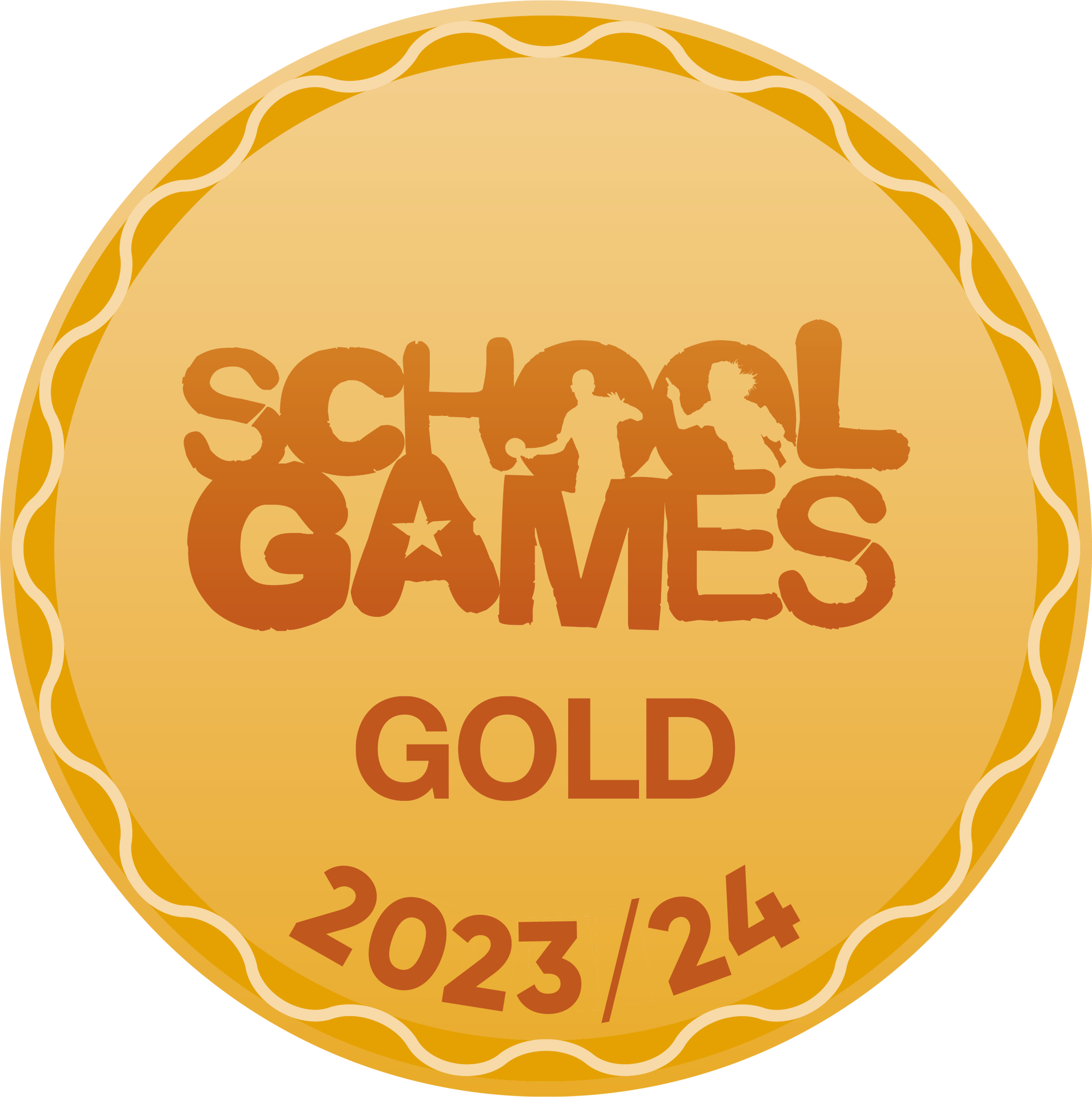Latin at Thornton in Craven Community Primary School
At Thornton in Craven Community Primary School, we have chosen to teach Latin because of the rich opportunities that come with learning this ancient language. Our choice for the teaching of Latin is based on these principles:
-
it offers the opportunity to reinforce the teaching of English vocabulary and grammar
-
the language lends itself to a systematic and effective style of teaching
-
Latin is a logical step after phonics, reinforcing the notion of structure and pattern in language
-
it provides a paradigm for language learning in KS3 and beyond, and enables the learning of other languages such as Spanish and French
-
teaching the subject allows insights into myth and other cultural aspects that form the basis of modern Western culture
The National Curriculum for languages aims to ensure that all pupils:
-
Understand and respond to spoken and written language from a variety of authentic sources.
-
Speak with increasing confidence, fluency and spontaneity, finding ways of communicating what they want to say, including through discussion and asking questions, and continually improving the accuracy of their pronunciation and intonation.
-
Can write at varying length, for different purposes and audiences, using the variety of grammatical structures that they have learnt.
-
Discover and develop an appreciation of a range of writing in the language studied.

At Thornton in Craven, we deliver on the above aims through two intensive Latin programmes [Minimus and Maximum Classics] throughout KS2. Children receive weekly Latin lessons that include both language learning and classics (study of Ancient Rome and Greece), enabling them to make substantial progress in the language. Lessons provide a balance of spoken and written language, enabling children to understand and communicate ideas, facts and feelings in speech and writing. The focus is to provide a foundation for reading comprehension and an appreciation of classical civilisation.
Minimus is a Latin course designed for children aged 7-10 with textbooks and supplementary print and digital resources, such as Minimus in Practice, which aims ‘to teach English grammar, including the main parts of speech and to build their [students’] English vocabulary through derivation exercises’ (Bell, 2018, p. 112). A short spin-off book, Minimusculus, caters for learners aged 3-6. The series is published by Cambridge 28 University Press and has sold more than 166,000 copies. It is used in more than twenty countries, including Argentina, Germany, India, Kenya, Macedonia, Portugal, Serbia and Montenegro, and Sri Lanka (Bell, 2018). The course is based on a real family who lived at Vindolanda in 100CE: Flavius, the fort commander, his wife Lepidina, their three children, assorted household slaves, their cat Vibrissa – and Minimus the mouse. It is designed to be taught by non-specialists and is used in many different situations, from a timetabled subject compulsory for all, to lunchtime and after-school clubs – since publication in 1999, it has been used by students aged 4-97.
KS2 Programme of Study requirements
National Curriculum guidance states that:
“Teaching may be of any modern or ancient foreign language and should focus on enabling pupils to make substantial progress in one language. The teaching should provide an appropriate balance of spoken and written language and should lay the foundations for further foreign language teaching at key stage 3. It should enable pupils to understand and communicate ideas, facts and feelings in speech and writing, focused on familiar and routine matters, using their knowledge of phonology, grammatical structures and vocabulary.”
The focus of study in modern languages will be on practical communication. If an ancient language is chosen, the focus will be to provide a linguistic foundation for reading comprehension and an appreciation of classical civilisation. Pupils studying ancient languages may take part in simple oral exchanges, while discussion of what they read will be conducted in English. A linguistic foundation in ancient languages may support the study of modern languages at key stage 3.
Pupils should be taught to:
-
listen attentively to spoken language and show understanding by joining in and responding
-
explore the patterns and sounds of language through songs and rhymes and link the spelling, sound and meaning of words
-
engage in conversations; ask and answer questions; express opinions and respond to those of others; seek clarification and help*
-
speak in sentences, using familiar vocabulary, phrases and basic language structures*
-
develop accurate pronunciation and intonation so that others understand when they are reading aloud or using familiar words and phrases*
-
present ideas and information orally to a range of audiences*
-
read carefully and show understanding of words, phrases and simple writing
-
appreciate stories, songs, poems and rhymes in the language
-
broaden their vocabulary and develop their ability to understand new words that are introduced into familiar written material, including through using a dictionary
-
write phrases from memory, and adapt these to create new sentences, to express ideas clearly
-
describe people, places, things and actions orally* and in writing
-
understand basic grammar appropriate to the language being studied, including (where relevant): feminine, masculine and neuter forms and the conjugation of high frequency verbs; key features and patterns of the language; how to apply these, for instance, to build sentences; and how these differ from or are similar to English
The starred (*) content above will not be applicable to ancient languages.”
Implementation
The implementation of a clear and purposeful languages curriculum is at the heart of the subject’s success. As noted by Ofsted, “in order to have a positive impact on their motivation, curriculum design should ensure that pupils feel successful in their learning [and] are clear about how to make progress.” The two main courses supported by Classics for All are Minimus and Maximum Classics.
Linking language and literacy at KS2
One of the main benefits of teaching Latin as a KS2 language is its useful interplay with English grammar and vocabulary. Maximum Classics’ introductory unit explores the history behind English’s links to Latin and Ancient Greek. Vocabulary used on the course is selected to facilitate the exploration of interplay between Latin and English vocabulary and every lesson incorporates games or activities drawing on this. The course also tracks KS2 elements such as word class, tense and auxiliary verbs using the same terminology used in English SPaG teaching (highlighted on the table in yellow).
Primary to secondary transfer & language skills co-ordination
The transfer from Primary to Secondary represents an often-missed opportunity in establishing the success of a student as a language learner. As noted in Ofsted’s 2021 paper:
“Crucially, the lack of effective transition in languages from primary to secondary school means that many pupils across England ‘start again’ in Year 7. This can have a negative impact on their motivation and perspective of the subject. Some studies show that learners find it important to feel that they are making good progress, specifically in relation to transition.”
Learning Latin as a KS2 language puts students in a strong position to start KS3 as competent and confident language learners. The Maximum Classics courses:
-
introduce the notion of different linguistic methods for conveying meaning
-
explore the paradigm of inflected language
-
use vocabulary that is at the foundation of languages such as French, Spanish and Italian
-
encourage the learning, retention and manipulation of vocabulary
-
explore links and relationships between languages
-
introduce grammatical concepts such as the infinitive, impersonal verbs and personal endings
-
situate language learning within a distinct and different culture
All of these are skills that will stand students in good stead for whichever language they learn at secondary level (and beyond).
The final unit of Maximum Classics is also designed to cover aspects of various KS3 subjects, to help students get a ‘head start’ across the curriculum.
The issuing of a Latin book to each pupil gives an opportunity for students to reflect on their work and take pride in their progress. A book also allows systematic recording of vocabulary, useful not only for encouraging word retention, but also useful for looking up words that have been forgotten. Books also afford the opportunity for teacher to check quickly on the progress of work. Books accompany the children through KS2, giving continuity in learning between academic years.
SEN students
Just as in all other areas of the curriculum, for the delivery of Latin, teachers need to anticipate barriers to participation for pupils with particular SEN. Planning will minimise those barriers so that all pupils can fully take part and learn. When assessing pupils with SEN, again, planning is crucial and an altered or alternative method of assessment may be appropriate.
EAL students
Although sometimes less fluent in English, EAL students can often prove very able students of Latin, especially if their first language is a Romance one. The systematic teaching of Latin grammar and its focus on links to English vocabulary provide a clear framework for EAL students not only to learn Latin but also to enrich their understanding of the English language.
More able students
Teaching Latin as a KS2 language lends itself to the stretching of more able students. Although Maximum Classics focuses on the translation of Latin into English, there are ample opportunities to extend the learning of more able students by challenging them to synthesise Latin sentences. In addition, worksheets for both courses often feature extension activities. Maximum Classics trainers address issues of differentiation throughout the CPD delivered to schools.

MFL Documents


.png)
.jpg)







.png)



